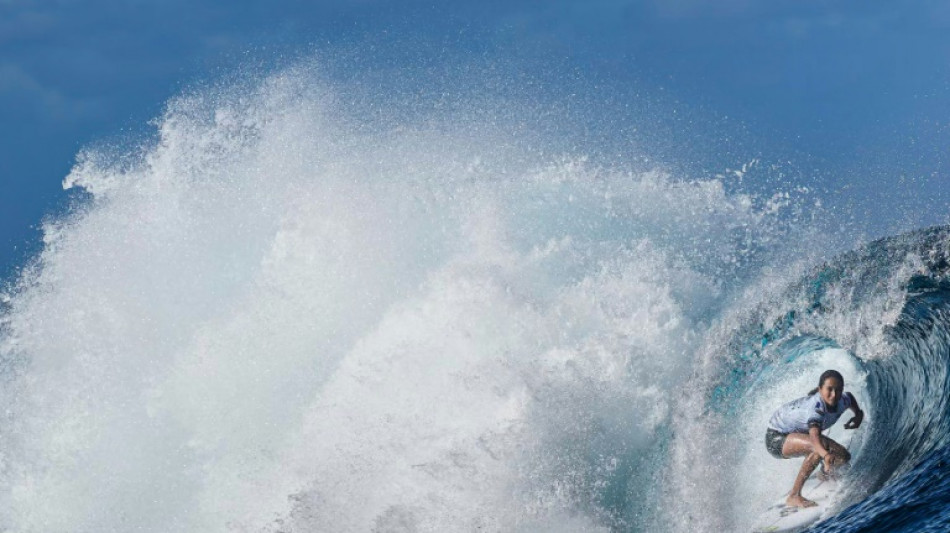Tahiti campaigners say 'non' to Paris Olympics surf tower / Photo: Jerome Brouillet - AFP/File
Surfers are due to catch the first waves of the Paris Olympics in nine months in Tahiti, some 15,000 kilometres (9,300 miles) from the French capital, but a plan to build a giant tower in a legendary surf spot is causing consternation.
The organisers of the 2024 Games want to erect a 14-metre (46-foot) aluminium structure in the water for judges to better assess the competition, and they have the local government on their side.
But local people on the South Pacific island, part of France's overseas territory of French Polynesia, are less keen.
"As soon as they start breaking the coral, we're going to have to step in," said Milton Parker, vice-president of the Atihau association, a local heritage group.
He said he had told the government it was impossible to put up the tower in a way that avoids damage, adding: "It's going to be a disaster."
An online campaign against the tower has attracted some 70,000 signatures so far.
And several hundred people recently joined a peaceful protest near the village of Teahupoo –- one of the world's most famous surfing areas and the designated Olympic site -- in a show of strength noticed by the authorities.
French Polynesian President Moetai Brotherson visited the nearby village of Toahutu last Saturday to soothe concerns.
"The drilling will obviously be noisy and there will be sand releases, but all of this will be contained and cleaned up," local media quoted him as saying. "Then nature will restore itself."
But not everyone is convinced by a project that has been controversial from the start.
- 'You can cut back' -
Surfing made its bow as an Olympic sport at the covid-delayed Tokyo Games and France was keen to keep it on the roster.
France's Atlantic coast hosts some of Europe's most famous surfing beaches and local officials had been hopeful of hosting the event.
When Tahiti was announced, dignitaries in coastal resorts like Biarritz were unimpressed –- not least because of the cost and the carbon emissions involved in putting a chunk of the Olympics on in the South Pacific.
The tower alone is expected to cost around 4.4 million euros ($4.7 million).
It will be three storeys high and include an air-conditioned technical room for internet servers powered by an undersea cable, and a toilet with a drainage system.
Local surfer Matahi Drollet is among many who believe the Olympic tower is a little excessive.
For other surfing competitions, he said, a wooden tower is installed and then dismantled after the event.
"You don't need 40 people on this tower, you can cut back. Especially since there are only five judges in a competition," Drollet told AFP.
- Lack of trust -
Along with Brotherson, Paris Olympics chief Tony Estanguet has moved to try to quell the growing disquiet.
"The objective is to continue to move forward, to listen," Estanguet said on Tuesday at an Olympics event.
"This project can still be changed to make sure it responds even better to the concerns of the local population. We want to preserve this site absolutely."
He said the wooden tower would not comply with safety standards.
But there is a lack of trust on the island.
Parker said plainly that the Polynesian government was lying when it claimed their engineers know the site.
And Drollet, too, insisted that the plan would degrade the coral and disrupt an ecosystem that not only provides surfing but also fresh fish for the islanders.
"We're not saying no to the Olympics, but we're saying no to the aluminium tower," he said.
M.Arya--BD
